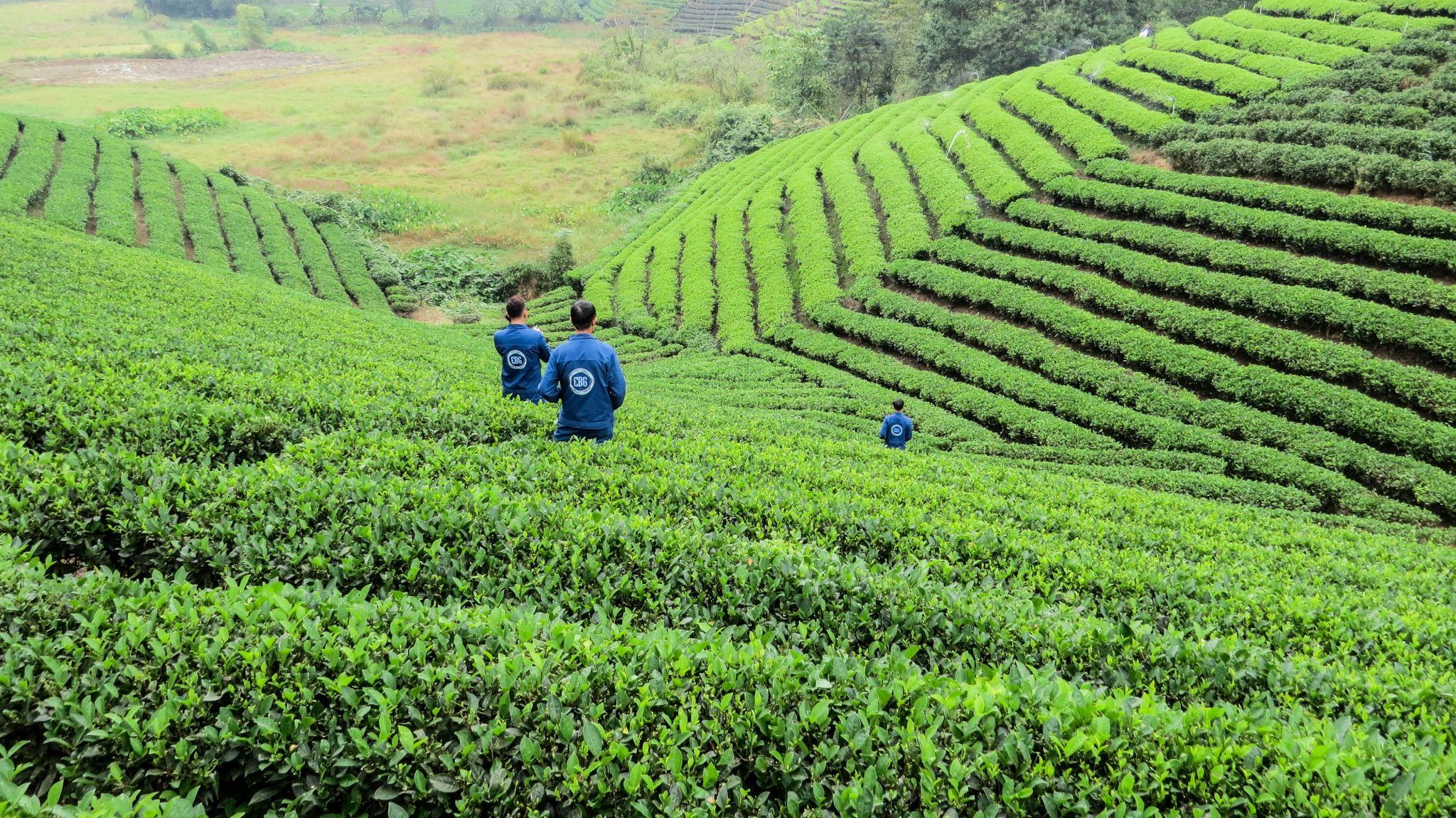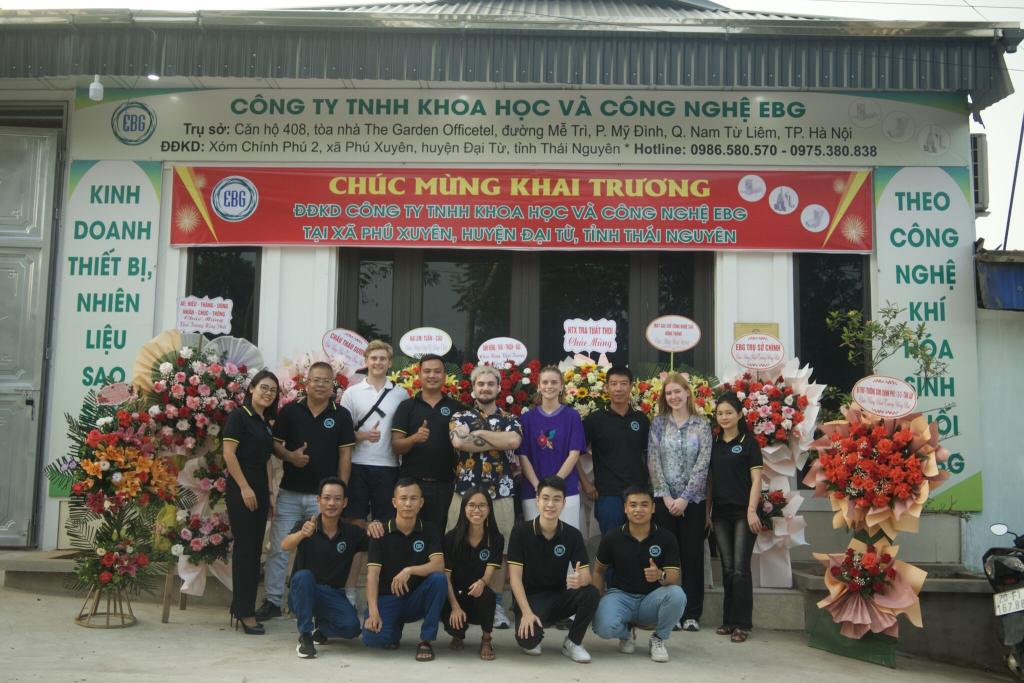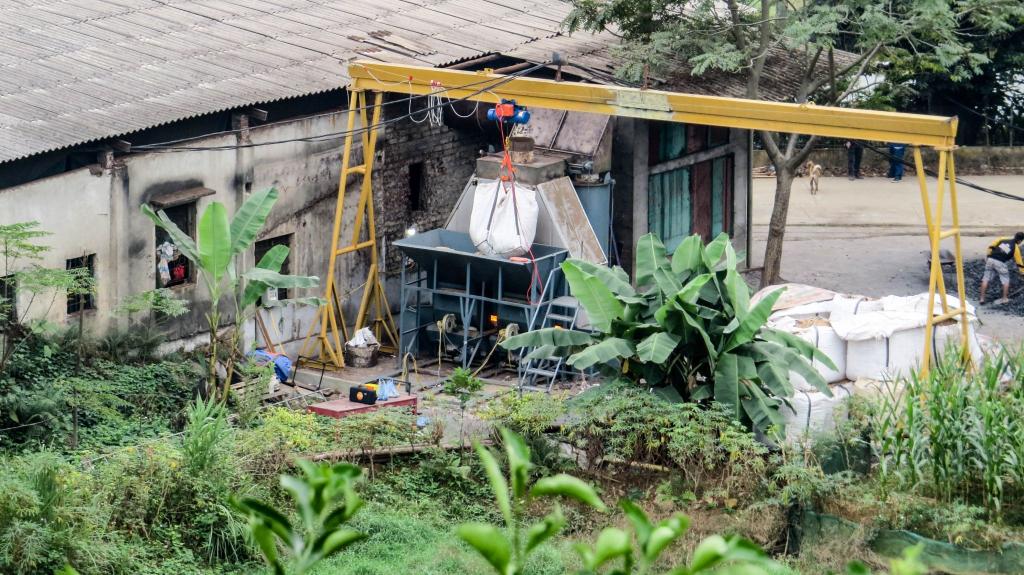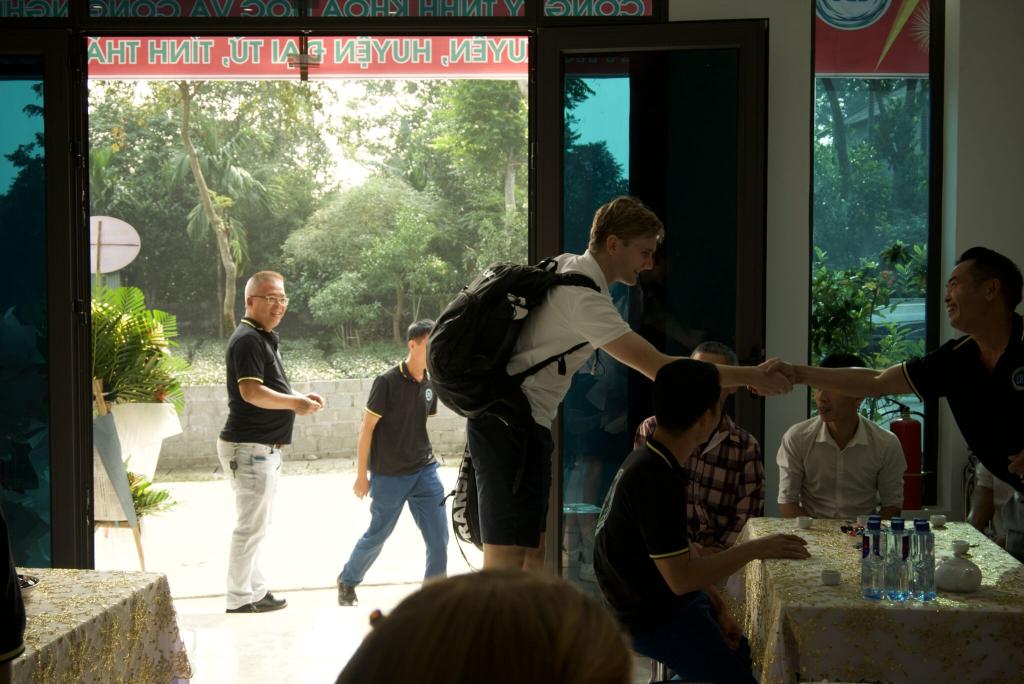
From academic theory to hands-on practical application: Students from the minor Frugal Innovation for Sustainable Global Development, have put their knowledge into action in a project about tea processing in Vietnam, focused on sustainability and health.
The minor Frugal Innovation is a collaboration between the Leiden University, TU Delft and the Erasmus University Rotterdam. Because of that, students coming from different academic backgrounds learn from each other's knowledge and tactics.
Holly Nagle, Maarten de Vries, Chiara Heemskerk, and Benjamin Esquivel travelled to Vietnam for their project. Together with the Center for Creativity and Sustainability (CCS), EBG Science and Technology Company and Diyalo Foundation they worked on the project “Biomass Gasifiers for Green Tea and Black Tea Processing”.
The traditional method of tea processing relies on firewood as fuel
The objective of the project is centred on the design and commercialization of biomass gasifiers for tea processing. The traditional method of tea processing relies on firewood as fuel, requiring significantly larger quantities compared to agricultural residue, and contributing substantially to environmental pollution and health risks for factory workers.
By transitioning to biomass gasification, where agricultural residue is used to produce heat for the drying process of the tea leaves, these challenges are mitigated, resulting in improved worker health and a cleaner, more sustainable environment.
Small and middle-large factories in northern Vietnam
These machines have already been adopted by some factories and household businesses in northern Vietnam. The primary beneficiaries of the tea processing machines are small and medium-sized factories in northern Vietnam, many of which are family-owned and operated.
The students are currently working on the following:
- Redesigning gasifiers for improved efficiency and public perception
- Developing effective communication strategies about the environmental and social benefits
- Identifying potential partners for larger-scale adoption
The anticipated outcomes include, but are not limited to, a new design for gasifiers, a user-friendly booklet introducing the gasifiers for green tea and black tea processing, and improved website content with high-quality photos and videos.
Frugal innovation: developing practical, locally adapted solutions
At its core, this project embodies the principles of frugal innovation—developing practical, locally adapted solutions by utilizing agricultural residue as a fuel source for biomass gasifiers. This shift away from firewood not only mitigates environmental impact but also enhances worker health, creating a more sustainable and efficient alternative.
 Curious about the results of this project? Follow the students on Instagram via Go Frugal Students.
Curious about the results of this project? Follow the students on Instagram via Go Frugal Students.









